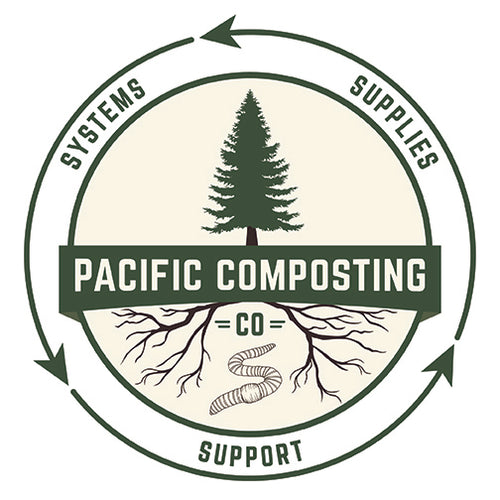Part 1
There's no doubt that spring and summer are important seasons for us composters, but arguably the best "composting season" is fall! This is an amazing time for both starting up brand new composters and overhauling your existing systems.
Many of us have a bounty of great waste materials at this time of year, such as left-over garden veggies and plants (just avoid composting the diseased plants), fall leaves, grass clippings, and other yard wastes. Plus, the cooler, wetter weather of fall also tends to support the composting process better than those hot, dry “dog days” of summer.
In regions with somewhat more moderate winter conditions (e.g. much of southern mainland BC and Vancouver Island, where we are based), getting systems established in the fall can mean ending up with a lot more rich compost by the time spring rolls around. Even in colder regions, fall start-ups can provide a great jumpstart for your spring composting efforts.
When it comes to choosing your bin, there are a wide range of good choices. One of our absolute favourites is the GeoBin!
Fall (Worm) Composting With GeoBins

GeoBins offer:
- Easy Assembly - Just take it out of the package, unroll it, and clip the ends together!
-
Flexibility of Size - Whether you want a more typical-sized composter, or something pretty huge by backyard standards (up to 931 Liters), the GeoBin has you covered.
- Air Flow + Moisture-Retention - The walls are very well ventilated, but the rigid plastic construction helps to retain more moisture than similar cage, fabric bag or even many wooden systems.
- Great Conditions for Composting Worms - It’s no secret we love vermicomposting. The GeoBin (especially with our set-up recommendations) can be an amazing large-scale worm composting system!
Speaking of composting worms, here are some solid reasons for adding them to your GeoBin (and other backyard composting systems):
- Worms do a lot of the work for you - mixing, fragmenting, transporting microbes to different parts of the system.
- They speed up, and improve the overall efficiency of a typical backyard composting process, especially in cooler, mostly-passive systems.
- They give you more C:N flexibility (using more “browns” is no problem).
- They produce a more valuable end product (even a little goes a long way).
- It’s a great way to grow even more worms - for starting new systems and helping others get going with vermicomposting.
Next: Part 2 - Learn how to set up your GeoBin for Worm Composting Success
Other Resources You May Find Helpful
- Backyard Composting - A Simple Method to Build Nutrient and Microbe Rich Compost!
- What is Living Material?
- Outdoor Vermicomposting 101
- Can I Add Red Wigglers to My Garden?
- Bedding - The Most Important Material in Your Worm Bin?
- Outdoor Cold Weather Composting Basics

